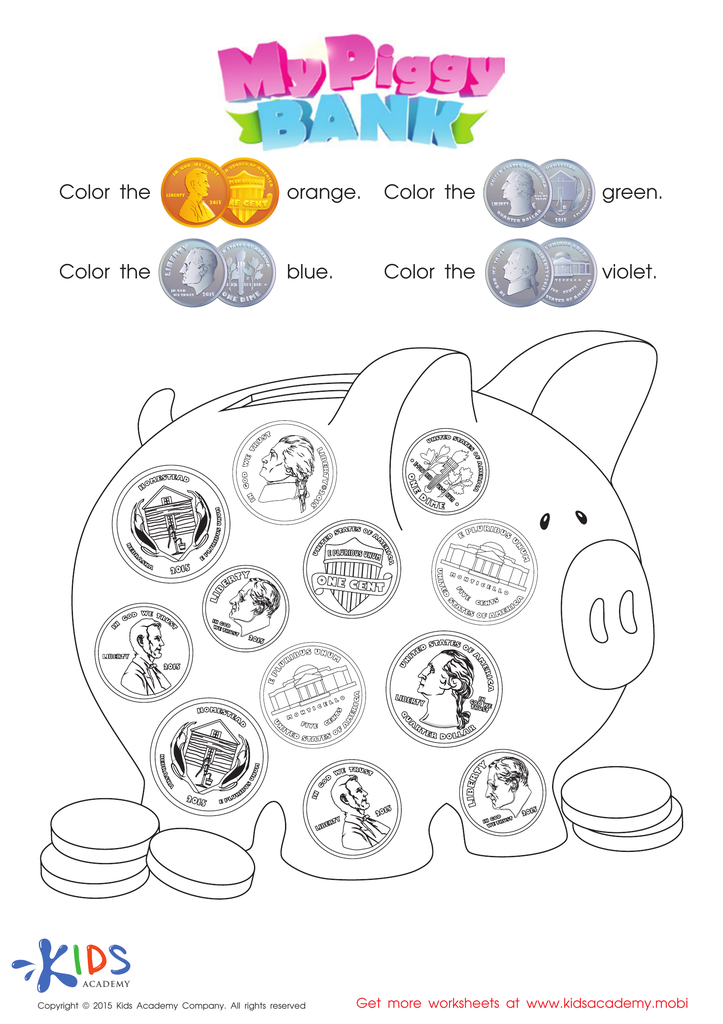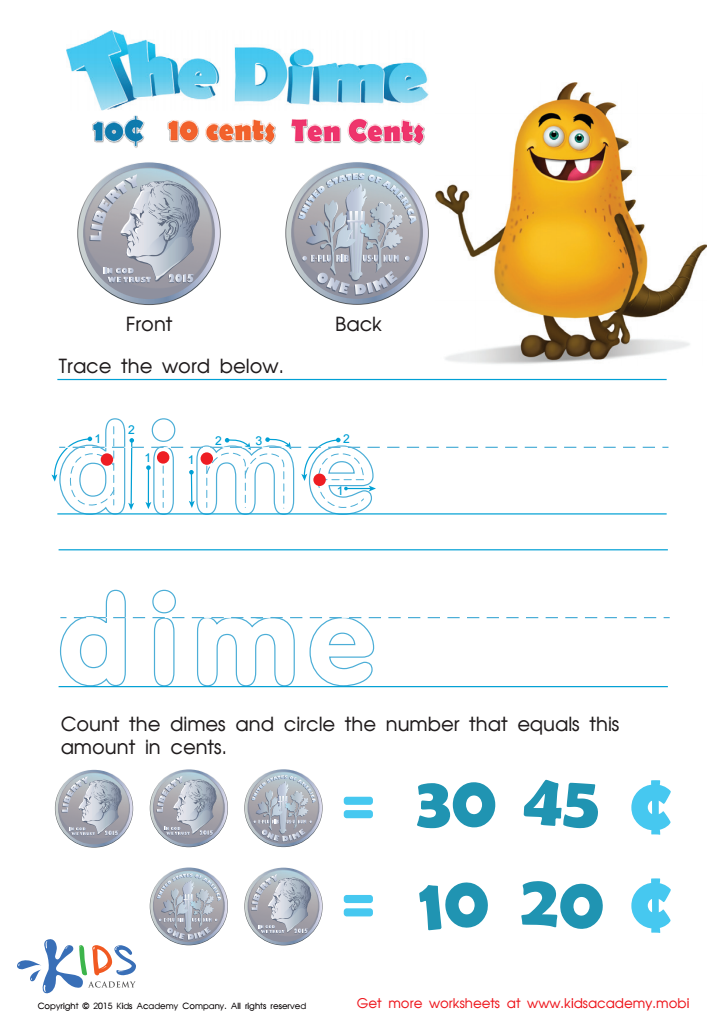Counting money Worksheets for Ages 3-8
3 filtered results
-
From - To
Counting Money Worksheets for Ages 3-8
Introduce young learners to financial literacy with our engaging Counting Money Worksheets, designed for children ages 3-8. These worksheets help kids recognize coins and bills, understand their values, and perform basic money calculations. Packed with colorful illustrations and interactive activities, our resources make learning about money fun and effective. Perfect for both classroom and home practice, these worksheets build a strong foundation in math skills, essential for everyday life. Instill confidence and competence in your child with our expertly crafted counting money worksheets. Start their journey towards becoming money-smart today!


Recognizing Money Money Worksheet


Ten Cents or the Dime Money Worksheet
Counting money is an essential skill that prepares children for future financial literacy, critical problem-solving abilities, and practical life situations. For ages 3-8, incorporating money concepts into their learning can offer multiple benefits.
First, learning to count money strengthens basic math skills, such as addition and subtraction, aiding overall math proficiency. Recognizing different denominations and understanding their values develop cognitive and numerical understanding, which is foundational for more advanced mathematical concepts.
Second, early exposure to money handling fosters responsibility. Children learn the value of different coins and notes, encouraging mindful spending and saving habits. Understanding money also builds early entrepreneurial thinking by teaching them the rewards of saving and wise spending decisions, which are invaluable life skills.
Moreover, counting money provides hands-on learning experiences. Physical manipulation of coins and bills enhances fine motor skills and offers a tactile and engaging way to explore mathematical ideas. This form of active learning ensures that abstract concepts become more concrete.
Parents and teachers that emphasize counting money cultivate a sense of independence and confidence in financial activities. These early experiences lay the groundwork for responsible financial behavior and economic understanding that are essential throughout life. In conclusion, instilling the skill of money counting between ages 3-8 is both practically beneficial and educationally enriching.


 Assign to the classroom
Assign to the classroom












